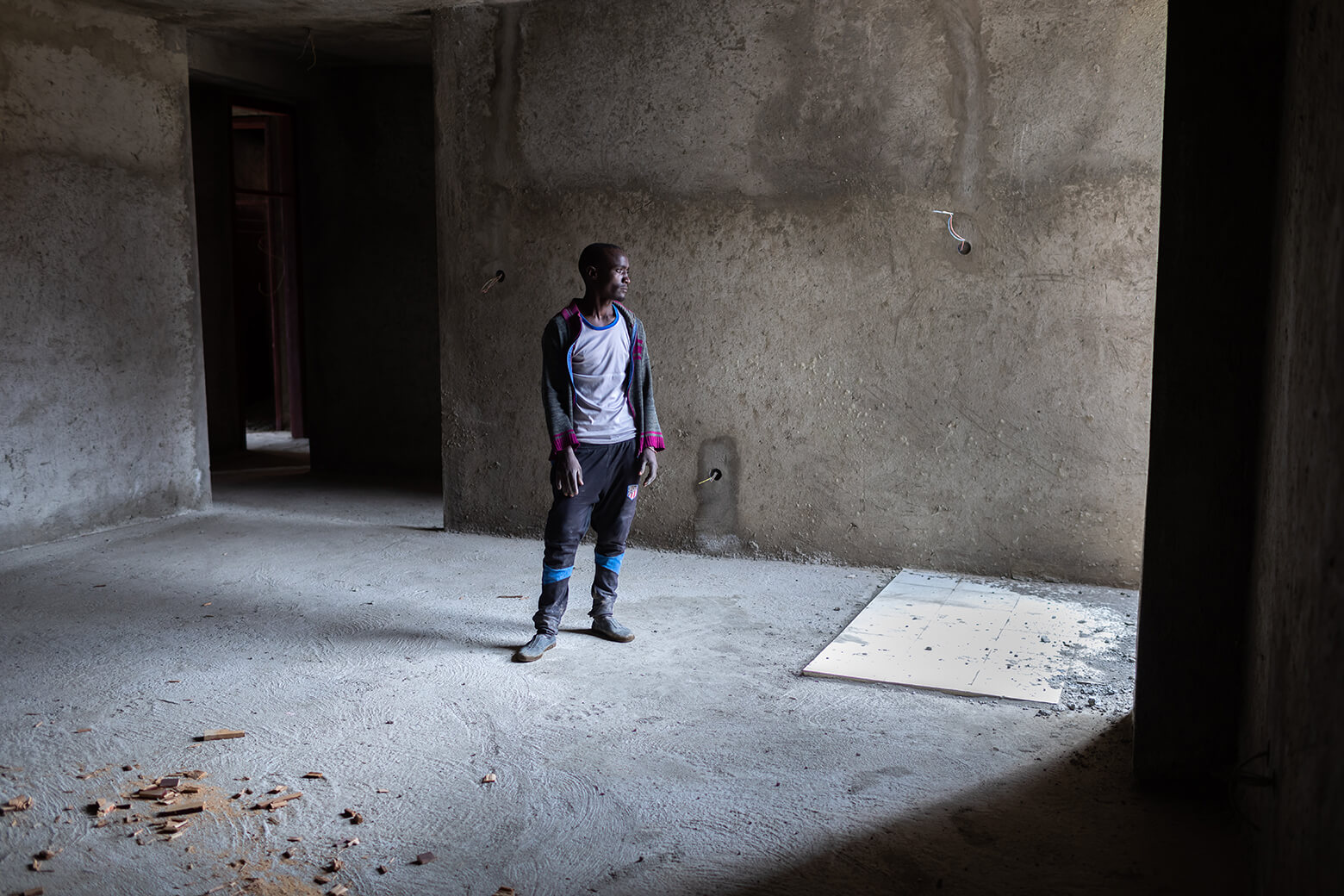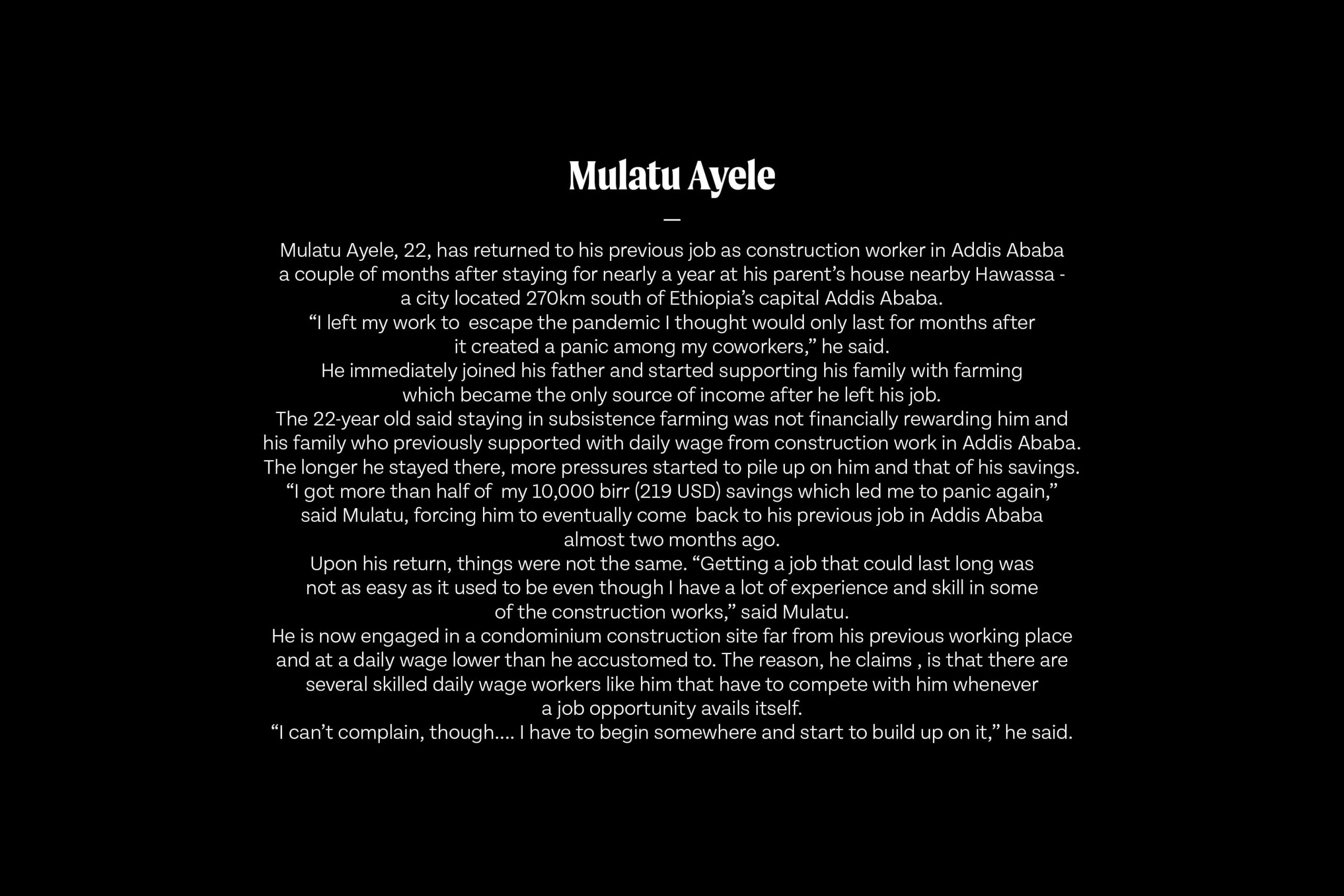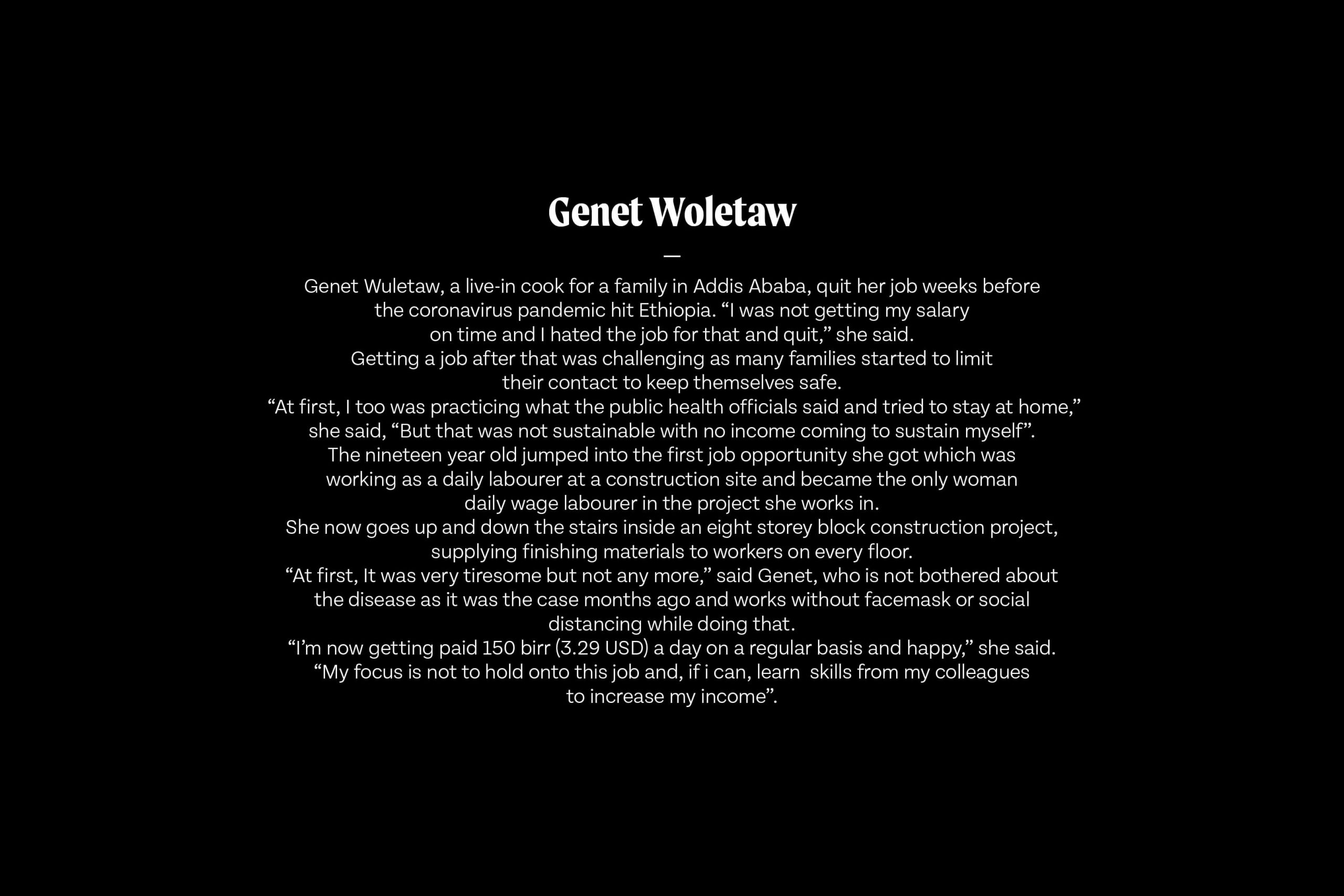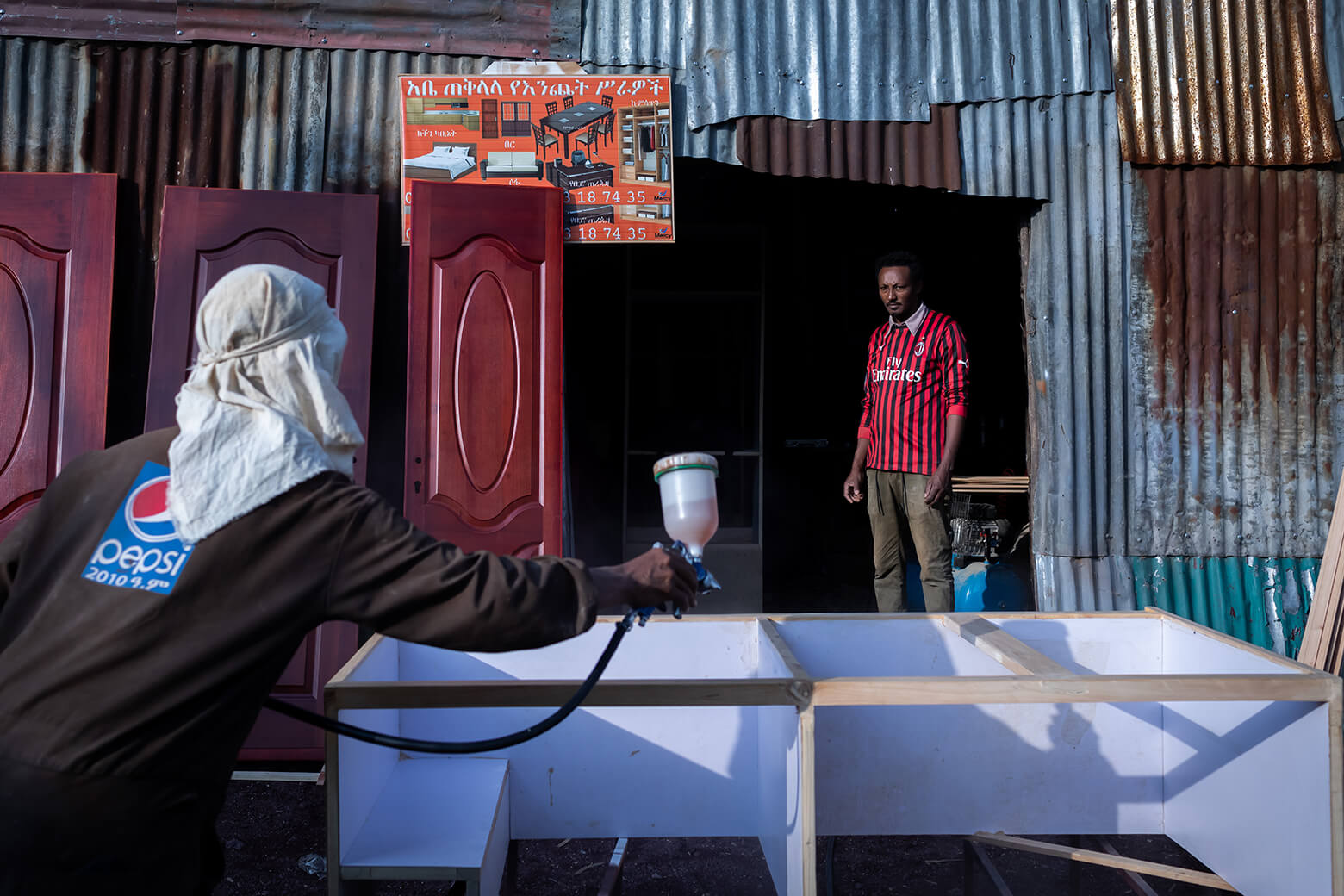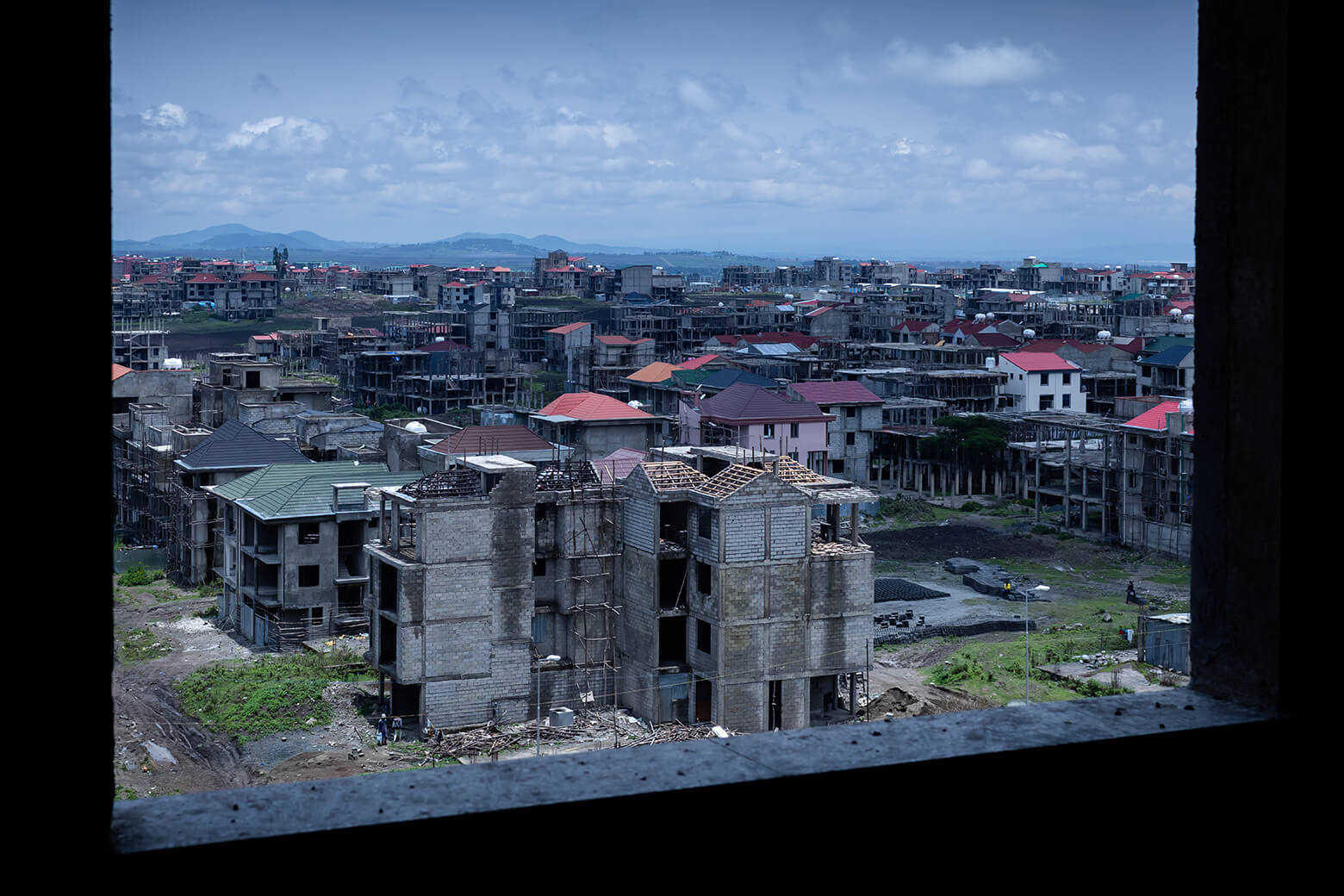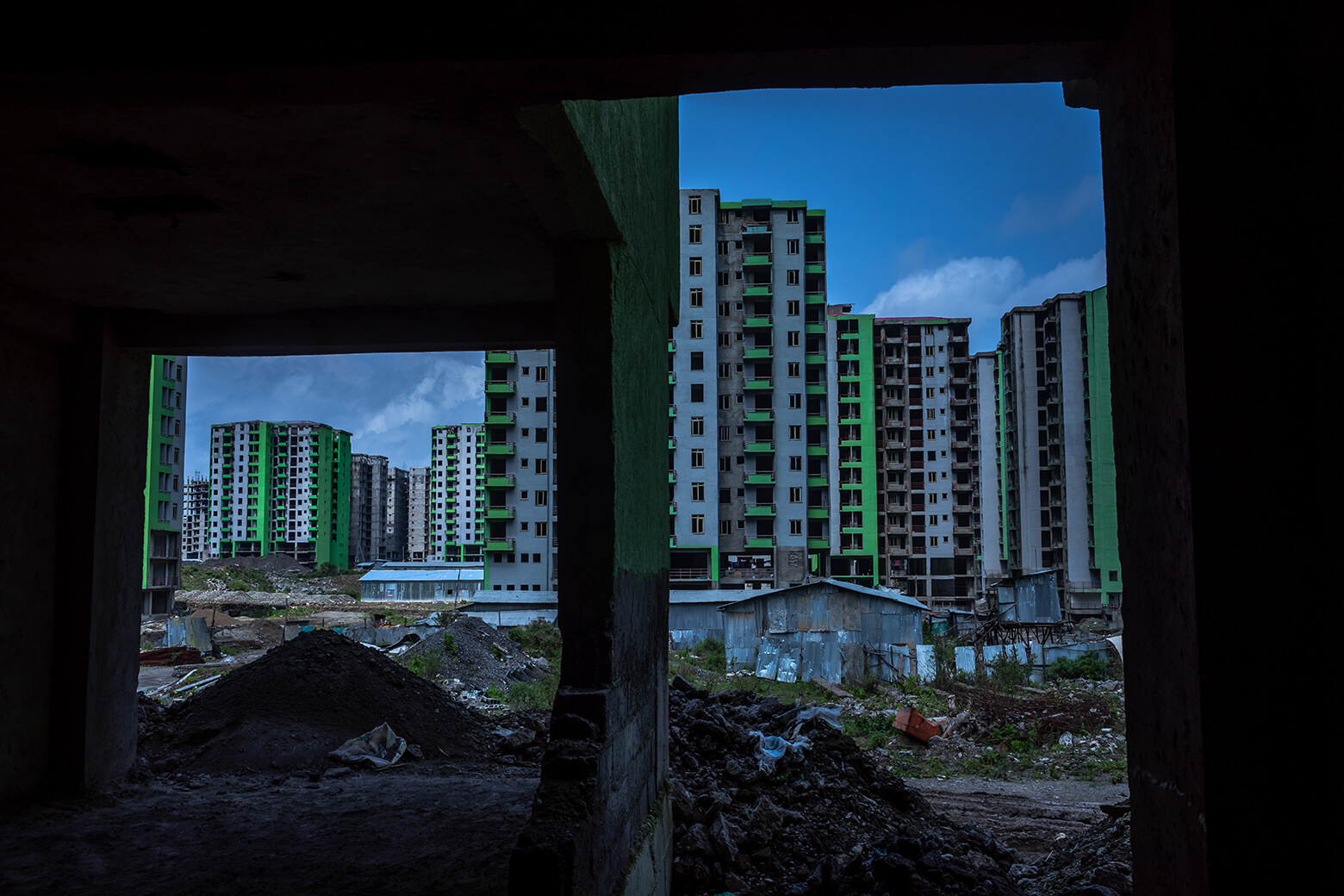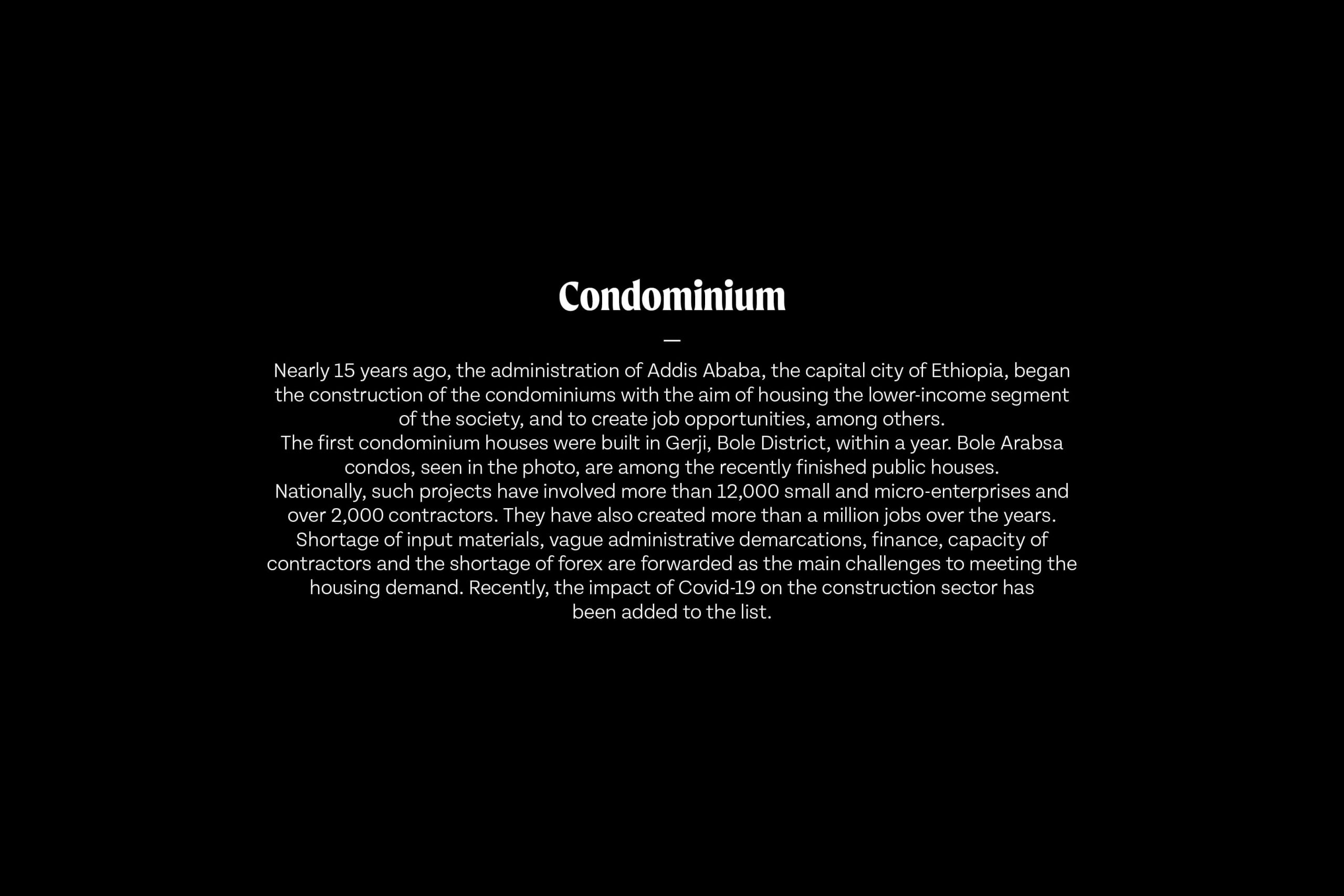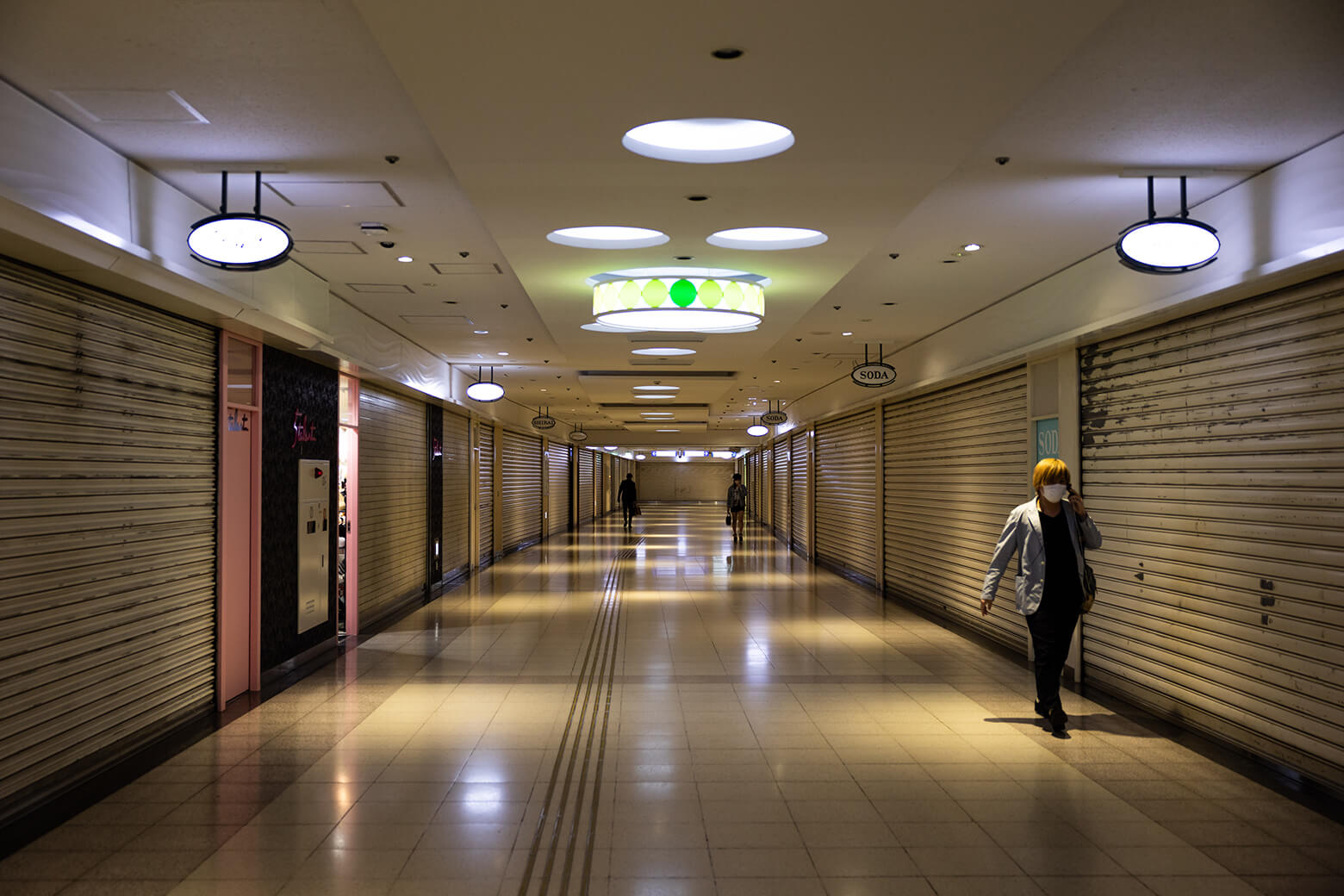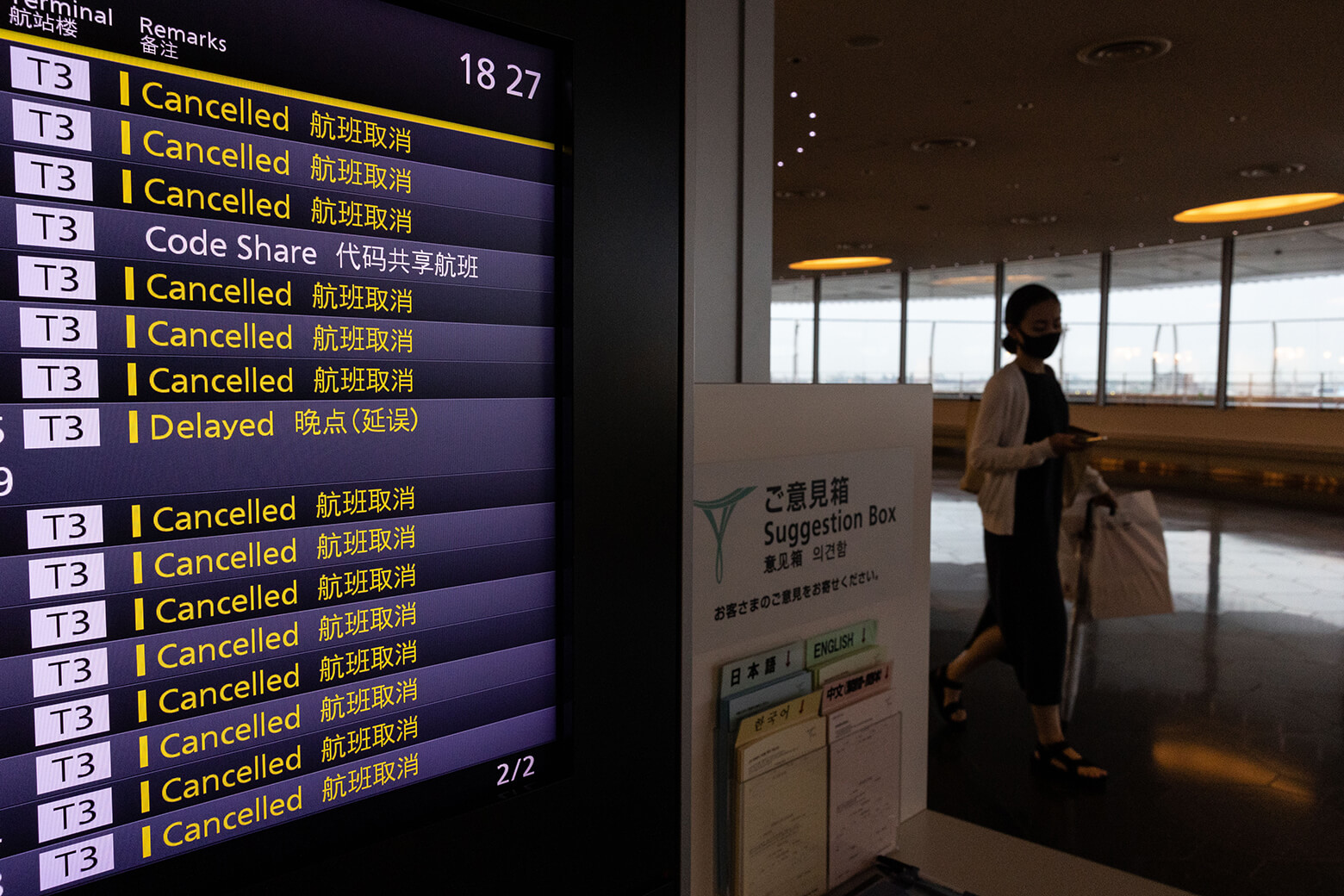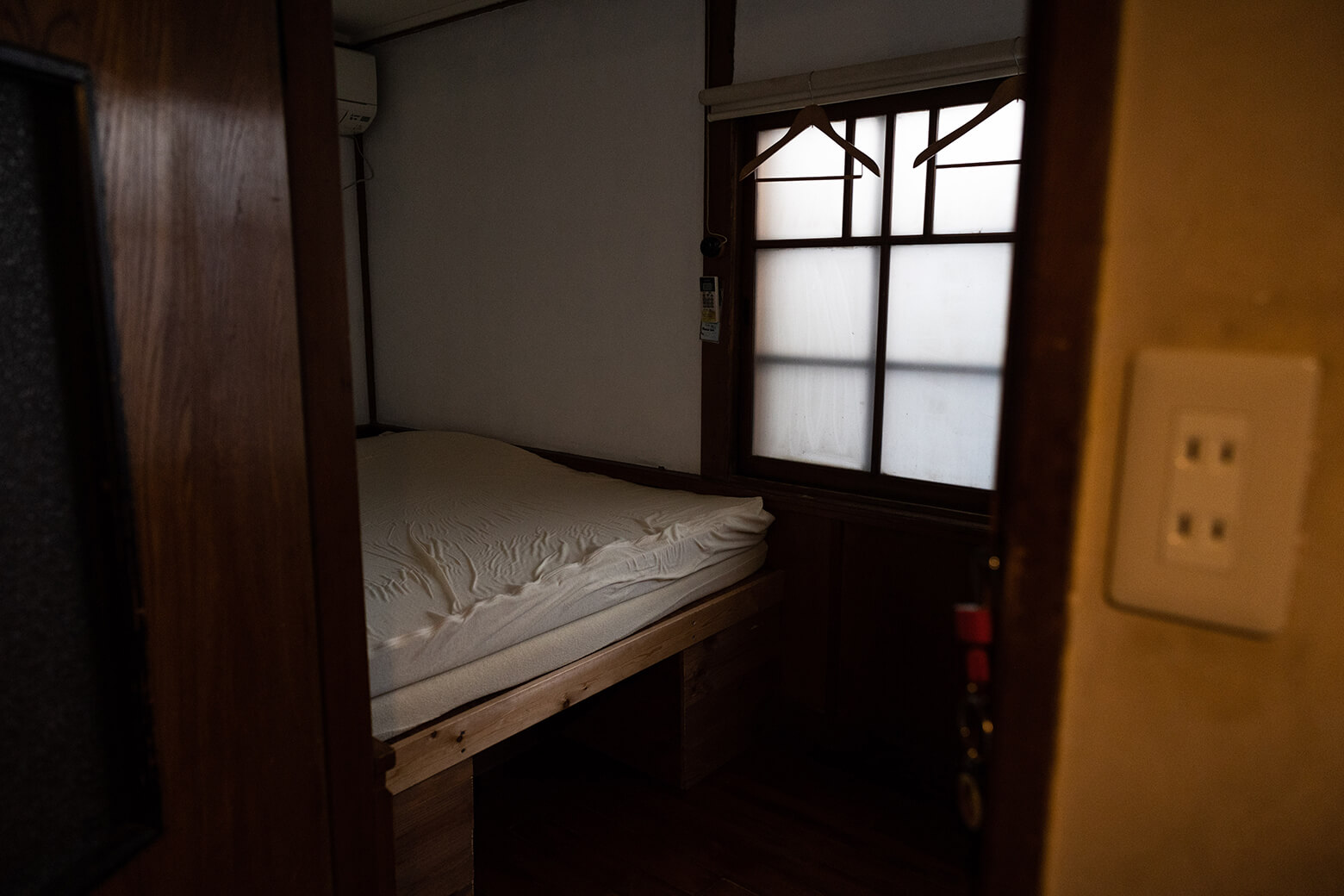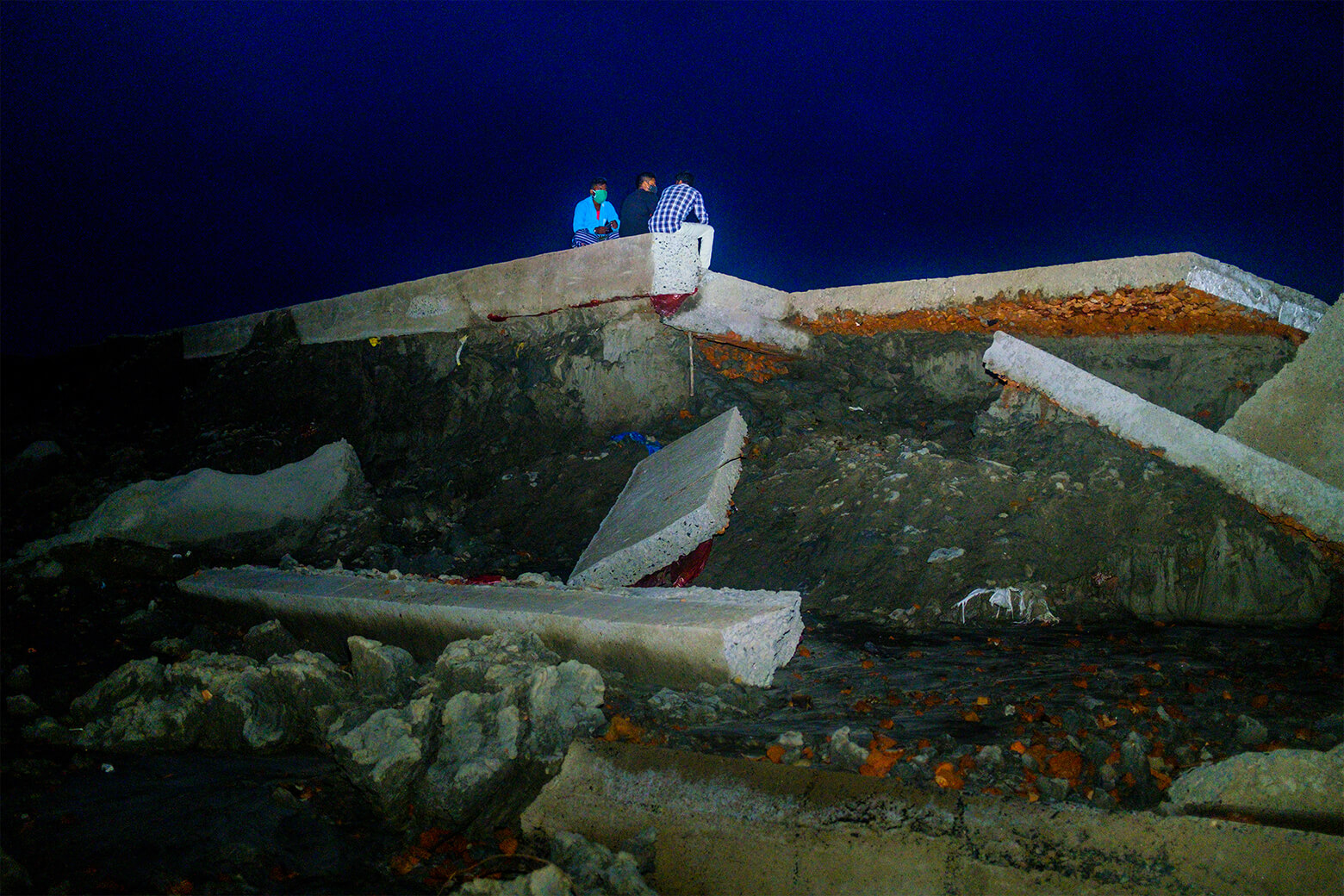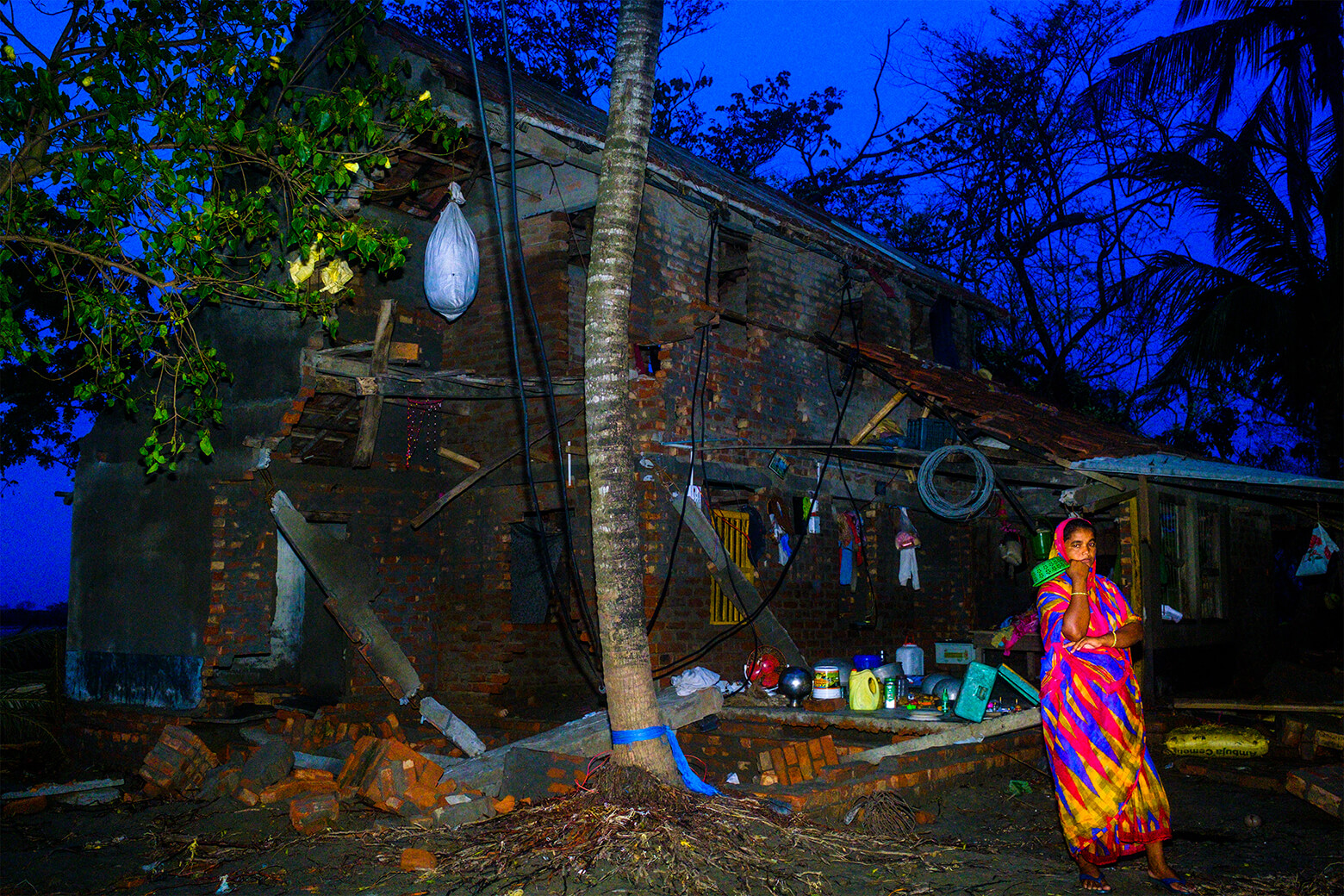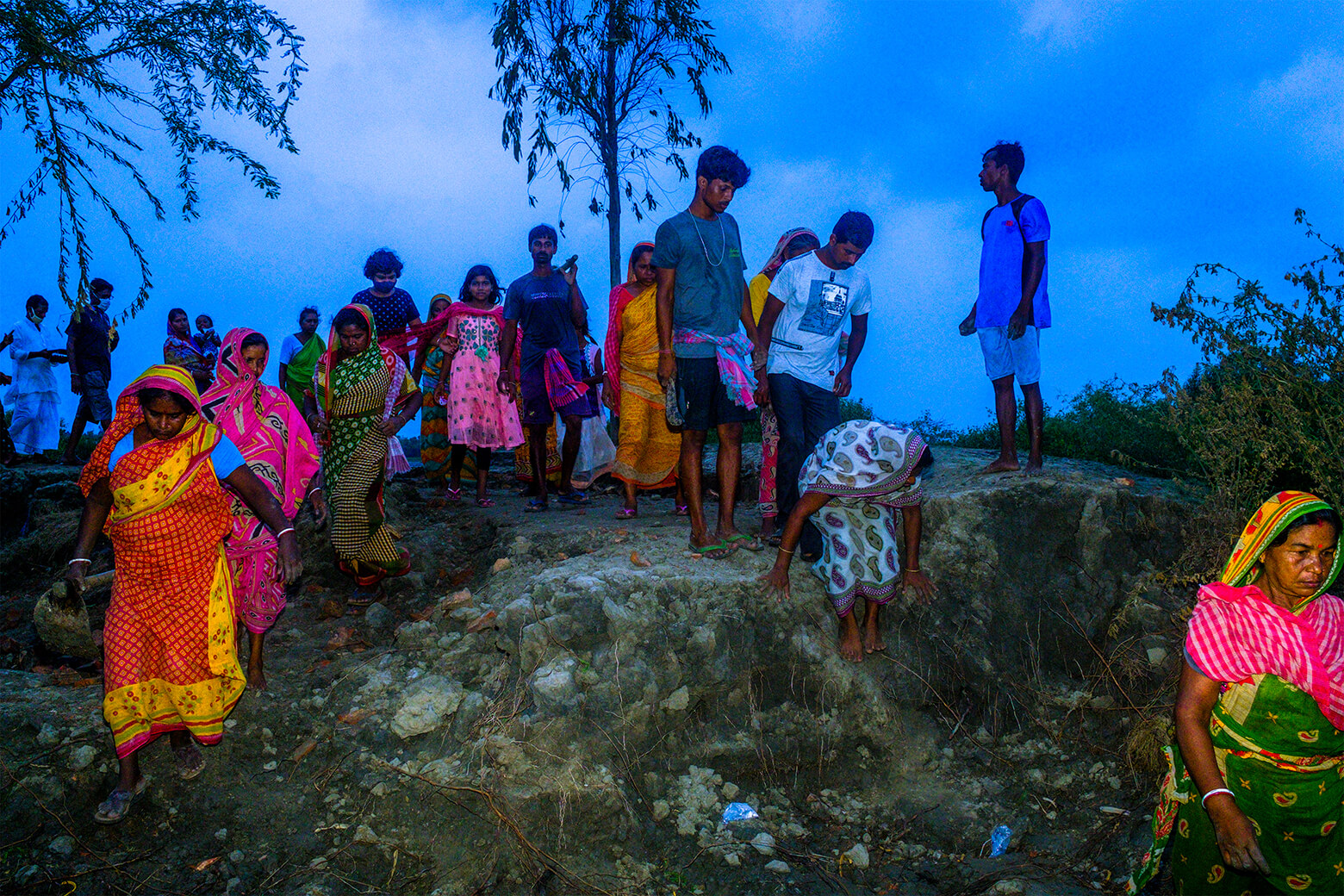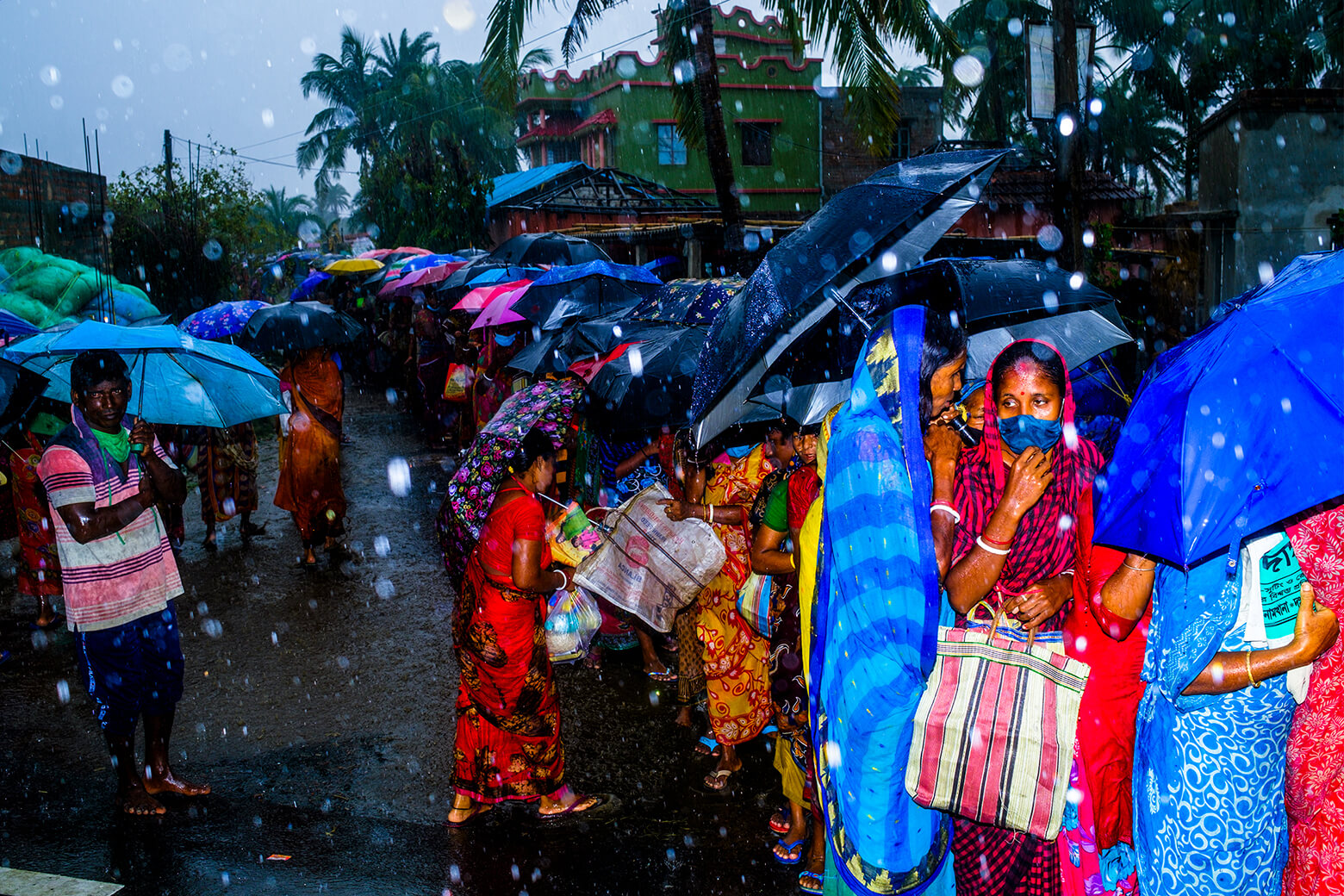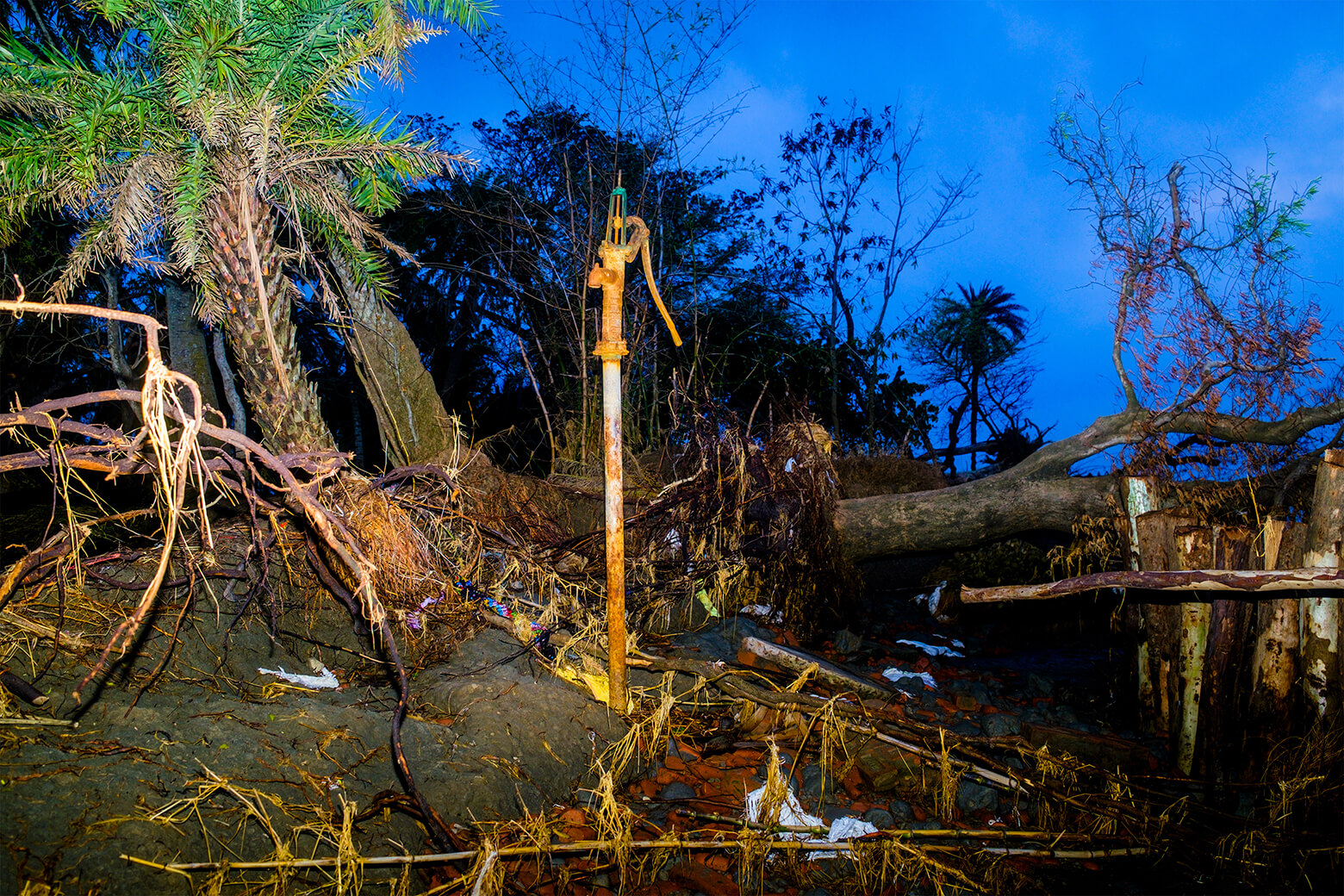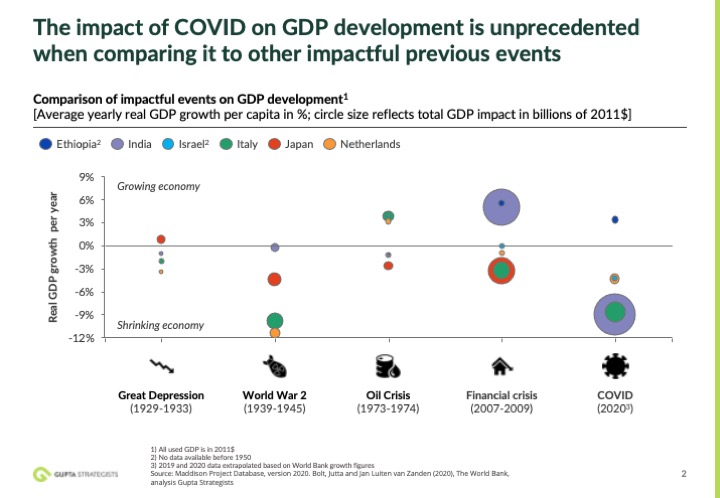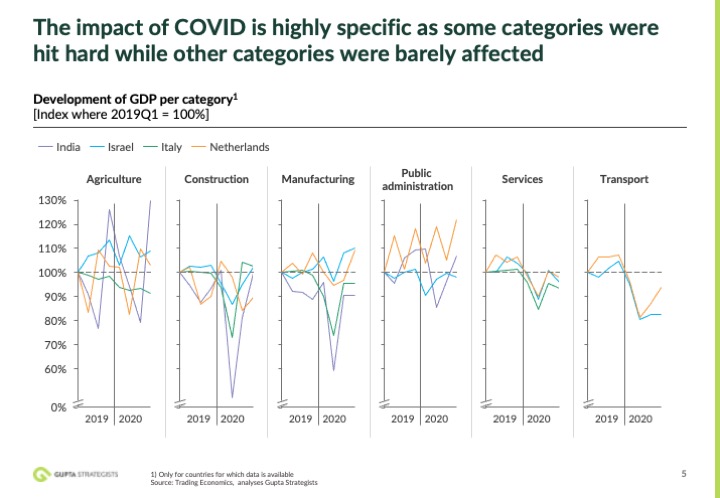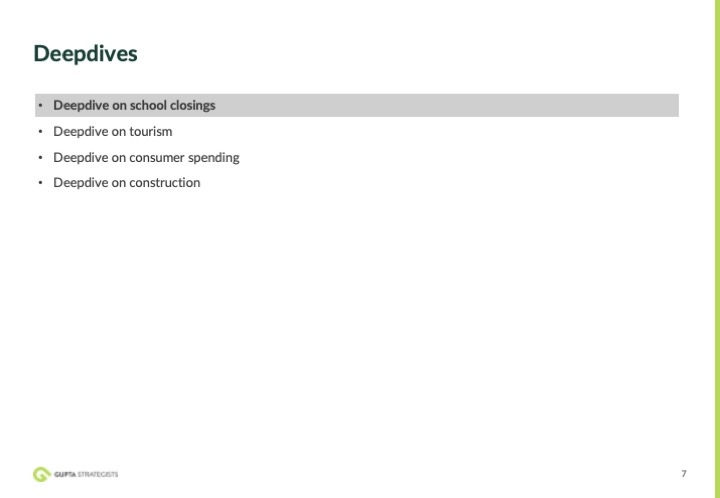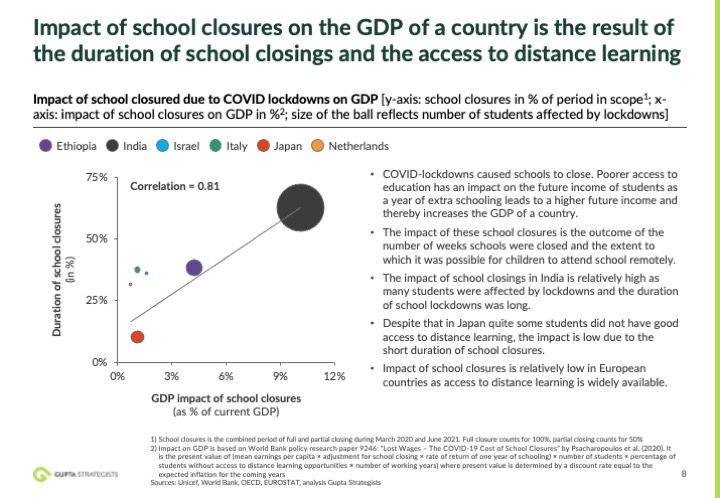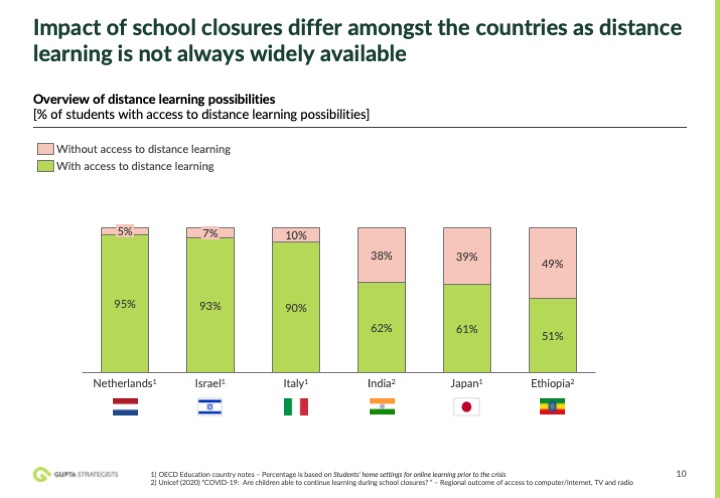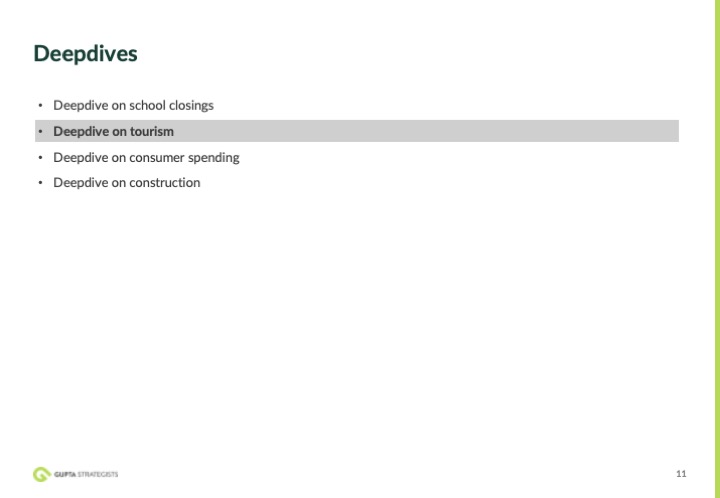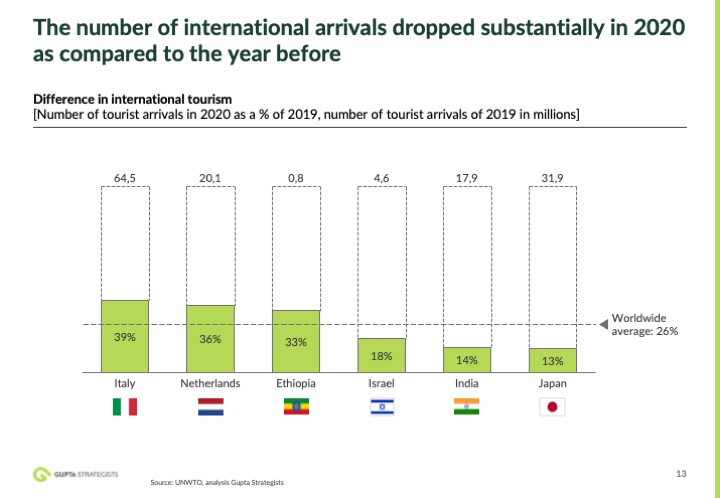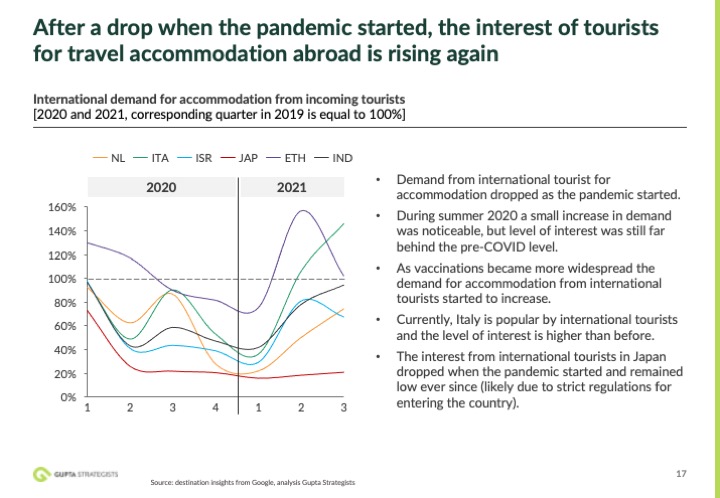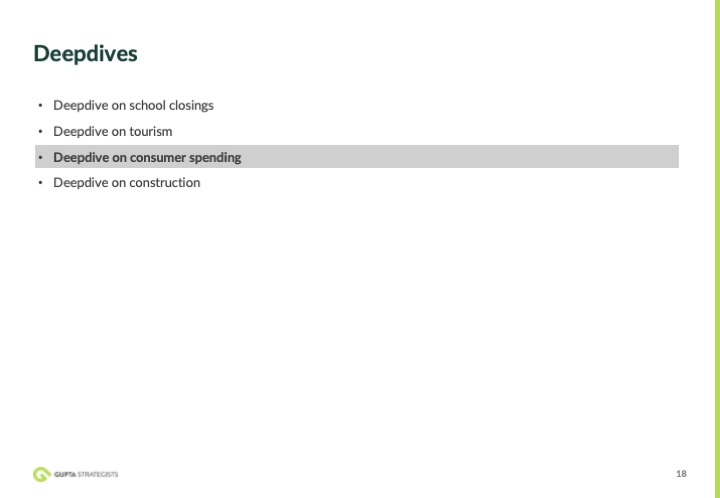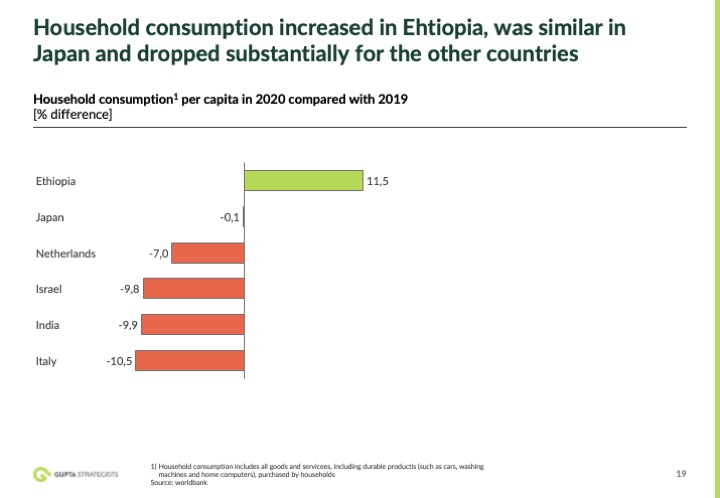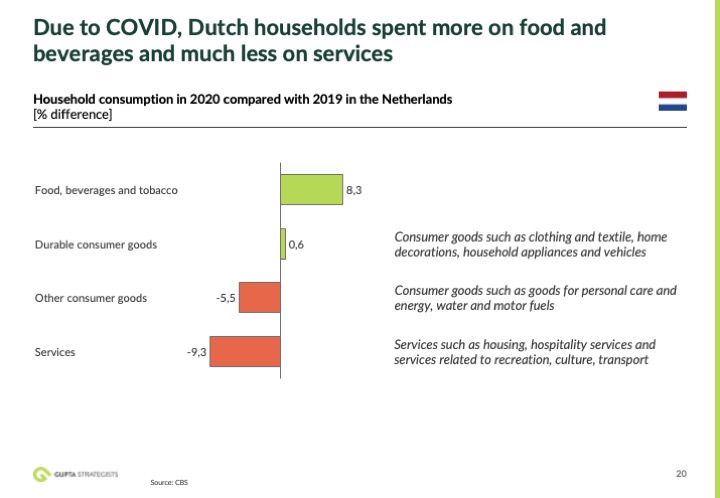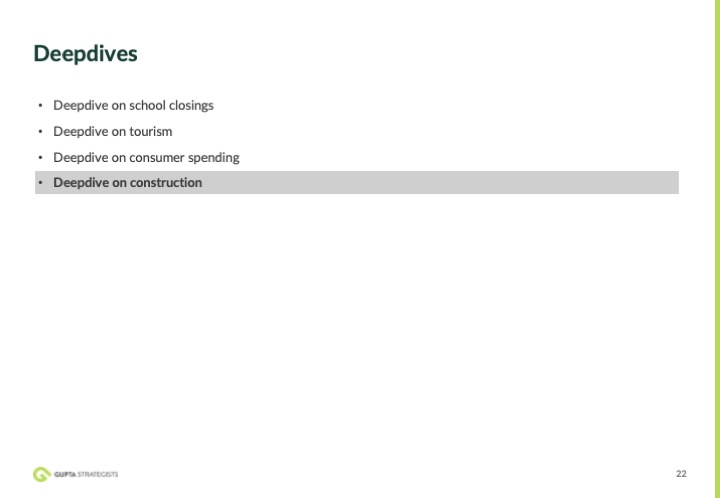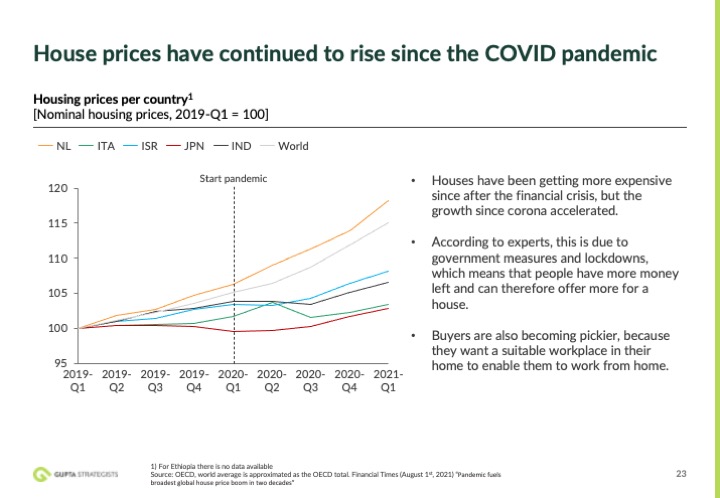Economic impact
PUBLISHED
SEPTEMBER, 27TH 2021
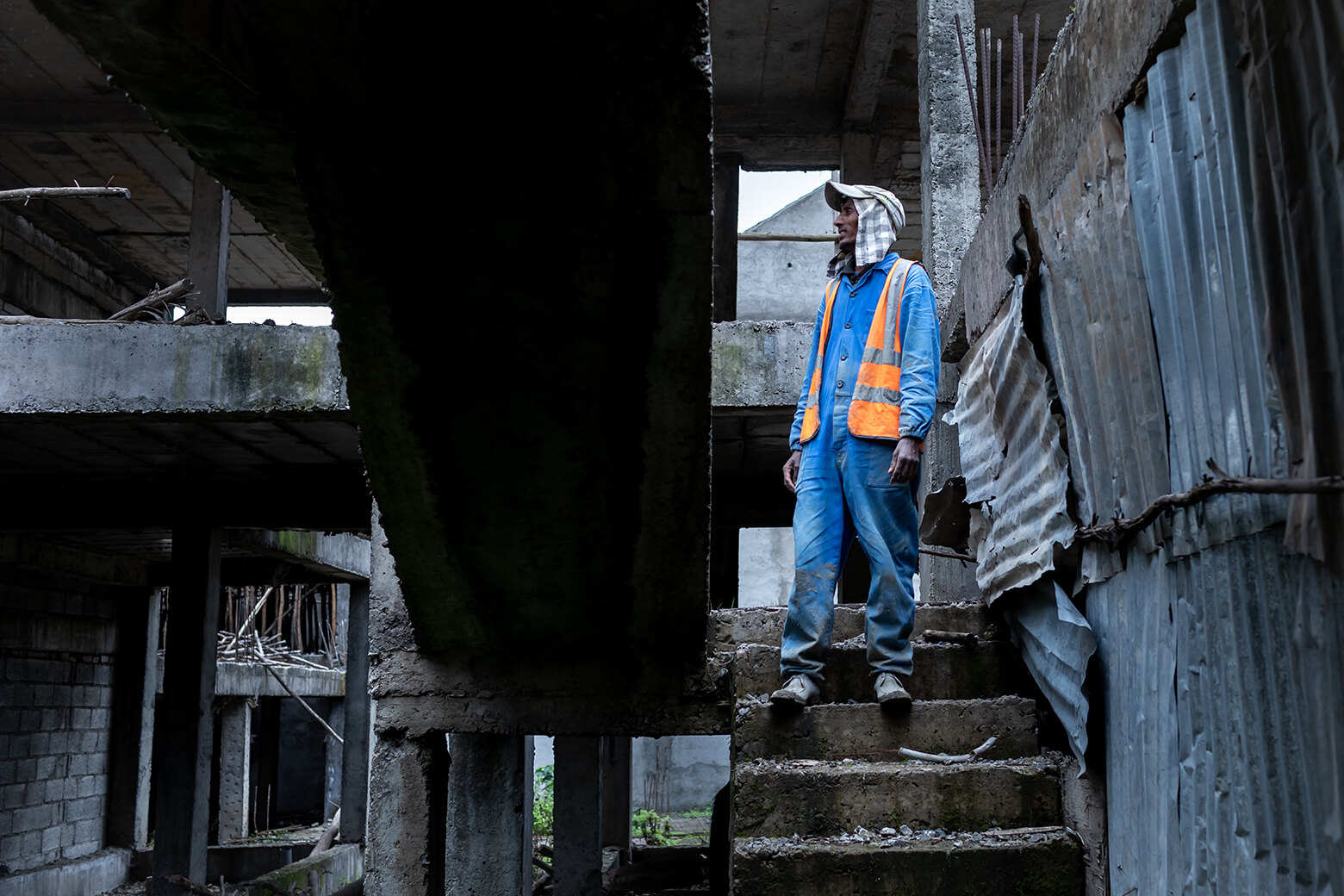
From the beginning it was clear that COVID would have a huge impact on the economy.
The magnitude of impact was obviously unknown at the beginning and even today it is largely uncertain. Well over 1½ years after the first COVID infection the impact is still unfolding, and understanding even the past true impact of COVID on our economies is a challenge.
The photos from the six focus countries give us new perspectives in how they have been affected by COVID. There are obvious differences given the hugely different development stages in these countries. But there are also similarities given the underlying causes and reactions. In the corresponding analyses we estimate the economic impact on the macro level in each country. We also investigate the impact of school closings which would have long term consequences on development. Finally, we delve into country specific sectors to understand the impact on micro level; for example the impact on tourism in Italy, the impact on housing & construction in Ethiopia.
At this stage we obviously cannot have a complete understanding of the impact of COVID on our economies. Nonetheless the insights here are already useful to mitigate the impact of COVID in the coming years and are also relevant for other pandemics in the further future.
COUNTRIES INVOLVED
MULUGETA AYENE
Covid-19 Magnifies Challenges Facing Ethiopia’s Construction Sector.
The expectation was based on the pandemic’s direct impact of the global demand shock, as well as the supply shock due to social distancing measures.
YUKI IWAMURA
ARKO DATTO
AVISHAG SHAAR YASHUV
CLAUDIO MAJORANA
Economic impact / Tourism
ESMEE VAN ZEEVENTER
COVID and economic impact: a Gupta Strategists analysis
CONCLUSION
The complete economic impact of COVID is complex to determine for several reasons. COVID is still with us and our response to it is still unpredictable, recovery could be better or worse than expected, and it is nearly impossible to isolate the effect of COVID on its own. Even with these uncertainties we believe these three conclusions are likely to uphold:
1. Impact of COVID is unprecedented:
COVID has had the most impact on GDP-development across the world when compared to all other impactful events since 1900 (e.g., World War II, financial crisis)
2.Impact of COVID is disparate:
For some countries COVID has had nearly no economic impact at all so far, for other countries the impact is likely to over 200% of the current GDP (cumulative till 2030)
3.Impact of COVID is highly specific:
Certain sectors (e.g., tourism) were hit hard by COVID and are still recovering, other categories were barely impacted. Each country has its own sector specific impact. The coming years will bring better understanding of these turbulent times. And that in turn will help to mitigate the impact on societies in the future. But for now, we can conclude that the impact of COVID on our economies is clearly unprecedented, disparate and specific.
If you are watching this from a mobile device please download the full pdf report
